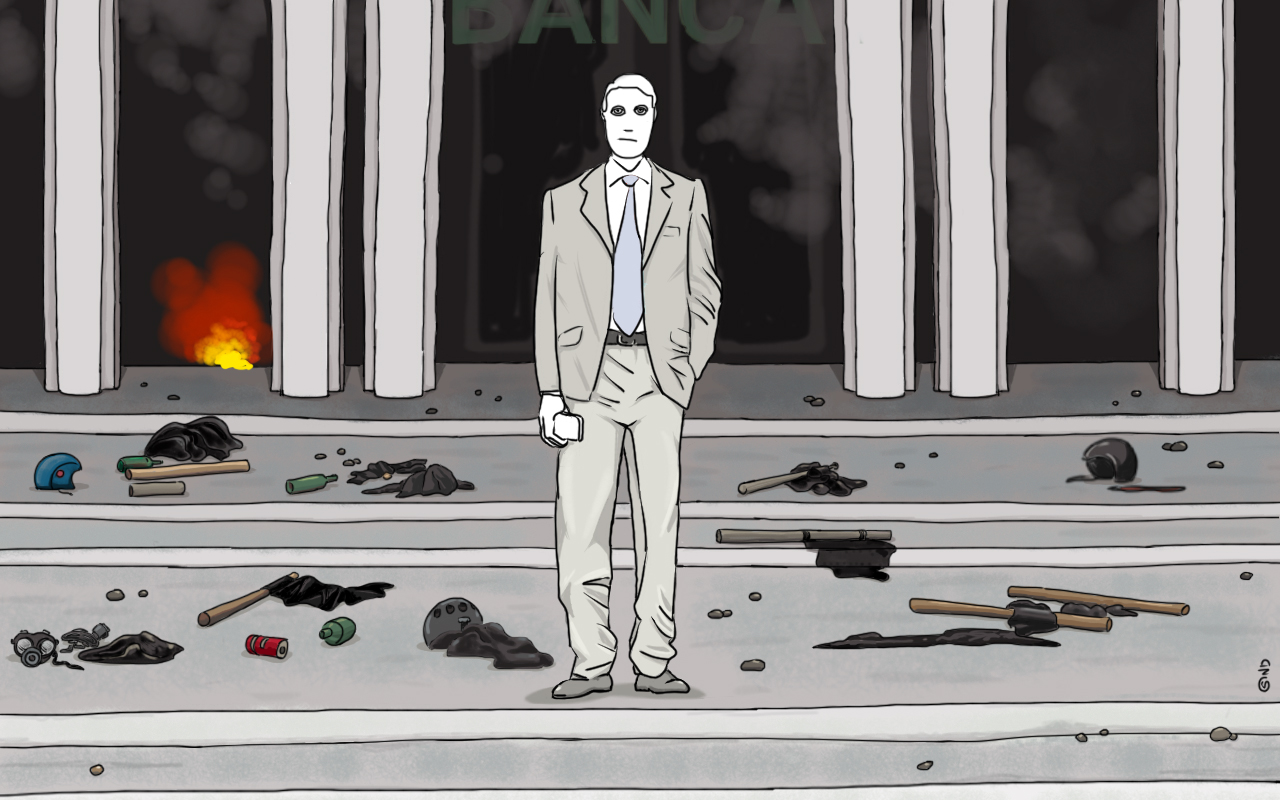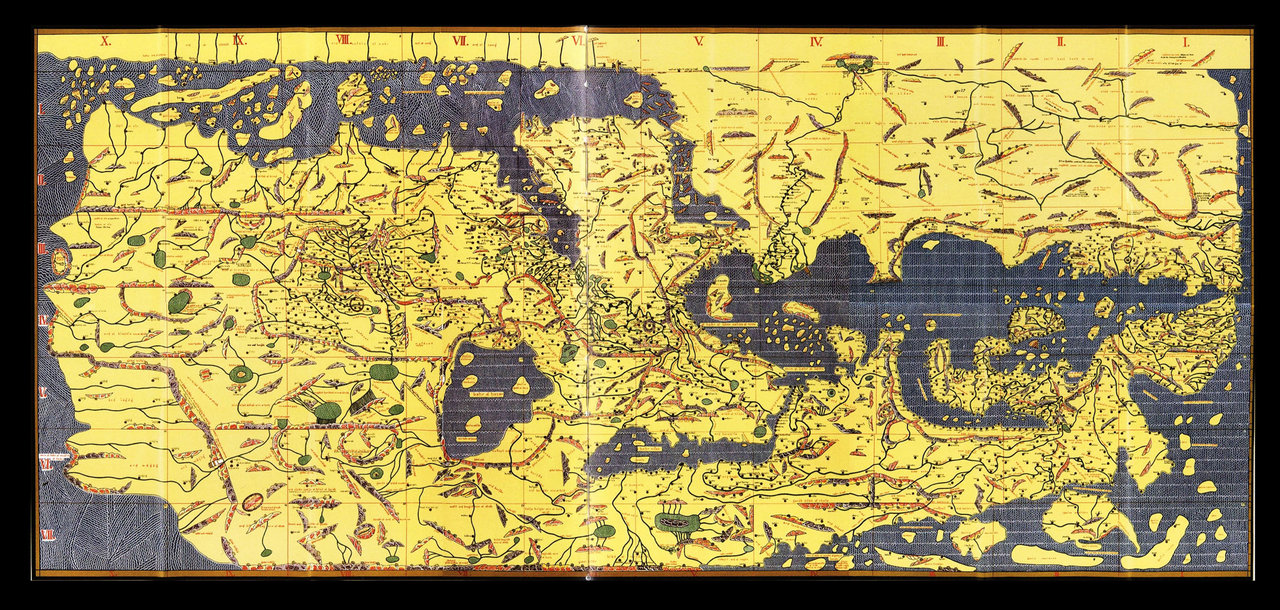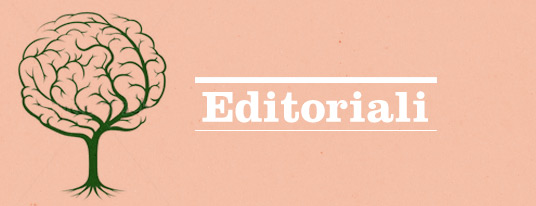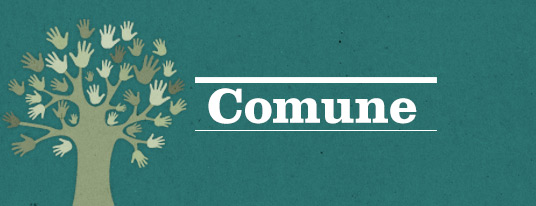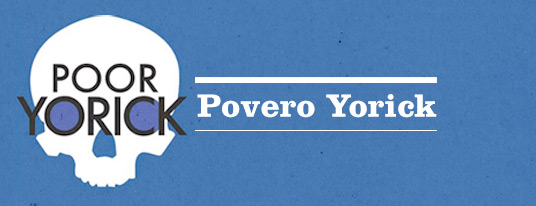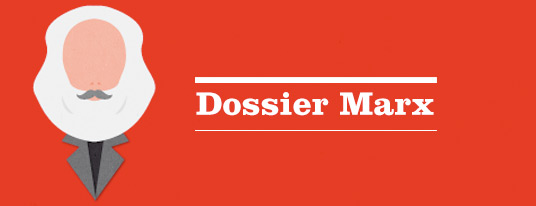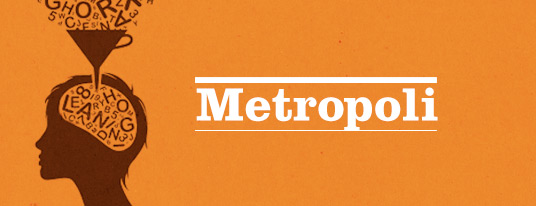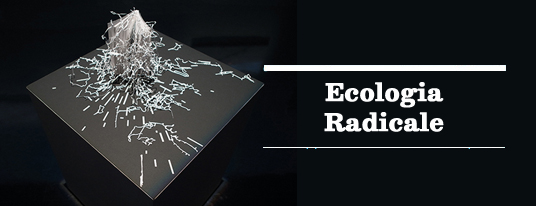by MARCO ASSENNATO.
The Lost Territories of the Republic ‘The Front National is the only truly republican formation because it is the only one that defends the nation and its sovereignty”. Marine Le Pen’s comment on the results of France’s regional elections on 6 December 2015 is a masterpiece of clarity and political logic, perfidiously making use of the military metaphor so dear to Prime Minister Manuel Valls (‘Reconquer the lost territories of the Republic!’), the latter having made this a rallying slogan already in the aftermath of the Charlie Hebdo mass shooting last January. If this is the socialist government’s main platform, Le Pen claims, then the French people know who is best suited to implement it. She then goes on to identify its symbolic location, the banlieues, firstly, as the hideout of a foreign invader camouflaged by the metropolitan street, territories to be reconquered in the Hollande/Valls civil war. Calais, too, that jungle of refugees, immigrants, invaders, should be wiped out to eliminate the plague of foreigners. State of emergency, protest and assembly bans, war on enemies within and without: who better than Le Pen’s neo-fascist RBM coalition to preside over such a national project?
The right and left are looking all mixed up, one indistinguishable from the other. Manuel Vall’s words can actually be traced to a specific, relatively recent history. In fact, The Lost Territories of the Republic is a collection of essays published in 2002 by Mille et Une Nuits. The book’s editor, Emmanuel Brenner, a historian, sought with this book – which was cited by Jean-Pierre Raffarin and Jacques Chirac when they passed the law banning hijabs – to bring together a series of testimony and critical essays, particularly by academics, on ‘what everybody is afraid to say about the banlieues.’ In an interview with Le Figaro1, Brenner stated of his book: ‘many young people in our country are identifying less and less with our culture. It has become an alien code, a dead language and not simply because of socio-economic factors. Here in France, what we are witnessing is the emergence of two distinct peoples, to the point that some are talking about the seeds of civil war.’
Two peoples at war, then. The cover of the book’s latest edition, published by Pluriel, shows a number of young people intent on destroying cars. But, according to the author, while one side is engaged in guerrilla warfare, the other shies away from the manifest conflict and refuses to see the connection between young banlieusards and violence. ‘Nowadays, intellectuals don’t want to play the FN’s game, just as their communist and fellow traveler forerunners didn’t want to play big capital’s game. For an intellectual there should be just one question: what are the facts?’ And so Brenner’s book denounces the perilous capitulation of French democrats. He finds a blatant example in school menus, some of which offer alternative meals to accommodate the dietary restrictions of practicing Muslims. ‘Introducing alternative menus in schools,’ says Brenner, ‘emboldens certain community practices that in such a scenario would face no other limitations. The risk is here. This represents the first step down a slippery slope, unraveling the secular fabric of our society, forcing us down a path contrary to what has made the French nation what it has been for at least two centuries.’
In one essay, a schoolteacher working in Paris’ northern periphery, writes that, after the terrorist attacks of 11 September 2001, she felt among her students ‘like one of those American pilots that went down in Vietnam, at the mercy of the crowd.’ But she was also careful to stress that, following the invasion of Afghanistan ordered by George W. Bush, her students returned among the republican ranks, concluding that, ‘Credit is due, contrary to what we read in the media, to the military intervention for revitalizing the West’s image, and so it was the USA that restored dignity to teachers in their classrooms, after they had been abandoned by the French state.’ Reconquest of lost territories is thus always a war on two fronts: foreign and domestic. Socialist Valls and President Hollande have once again taken up this time-honored cultural tradition. Marine Le Pen, riding high on the election results, explained to them that the Front National is the only coherent interpreter of their own platform. If something had been up for discussion as the final counts were being tallied, it was this.
As early as April 2015, Jacques Rancière had denounced the conversion of republican ideals into weapons of discrimination and hate, referring to ‘universal ideals that have been hijacked and coopted’ by governments in their attempt to make of them ‘a distinguishing feature of one group in order to put an entire community on trial’. He went on to give the only reasonable answer to the question that has perturbed the French press during the past few days: what happened to the left? Why don’t the people listen? How has it come to this?
‘For twenty years or so,’ stated Rancière in an interview with Nouvel Obs, ‘the arguments propping up xenophobia and racism have been put forward by certain intellectuals of the so-called republican left […]. Grand universalist values – secularism, everybody equal before the law, gender equality – have become instruments for distinguishing between we, who belong to those values, and they, who don’t. The Front National are thus able to downplay their xenophobic rhetoric, because the republicans are using it for them. […] “Where is the left?” the socialists wonder. The answer is simple. It’s right where they have led it: nowhere.’
The reasons for the FN’s electoral gains are actually just as simple. The knee-jerk, whole-scale application of neoliberal policy – barely mitigated by France’s military ambitions in Europe – have exacerbated the segregated, hierarchical and precarious conditions of a large section of the population, to the exclusive advantage of a minority now threatened by its own avatars, caught in the vice between the twin fascisms of nationalism and religious fundamentalism.
As Judith Revel has explained on multiple occasions, the enthropization of the banlieue, the profound divisions in European societies, is by no means inevitable. On the contrary, it is the result of policies that have transformed the Fordist-type unskilled workforce into isolated workers molded to suit the purposes of cognitive capitalism. It’s often claimed that the French elites (all of them – the major parties, the mainstream press, trade associations, technocrats) have revealed their utter ineptitude in the face of the challenges posed by a financial crisis which has snowballed into a threat to the entire European political project. And that is undoubtedly true. They are grasping at straws. Their only tools for dealing with a geopolitical landscape which, however complex, is not impossible to rethink, and domestic tensions that are now apparent to everybody, are the police state and war, in contempt of all public liberty. Marine Le Pen, like certain other exponents of xenophobic ideology, ceaselessly repeats the same convenient refrain: nationalism represents the only viable escape from the European crisis. The authors consider this too hasty a jump from pragmatism to fascism, and the only thing to be done with fascism is to fight it.
The media’s pathetic response won’t help. Hopefully, the lesser evil will prevail, the Socialist Party will come away less bloodied than expected after the contest next Sunday. So the journalists of the left write. Probably, Sarkozy’s strategy has been weakened by these election results, which should cause further fragmentation on the right, writes Le Monde. What is certain is that, in a new normal where less than half the eligible voting population shows up at the polls, the FN has secured the support of 30% of voters, making it an established player in mainstream French politics, with many expecting its support to grow. That means that the party has succeeded in bringing its agenda far and wide in the institutional fabric of French society. It has developed into a sophisticated organization that is well-positioned in the bureaucratic structures of France, and this will have an impact on the European debate as well as on people’s day-to-day. The question that remains is how do we organize amidst the European crisis, caught in the vise of nationalism and neo-liberal policy?
* Translation by Graham John Trim.
www.lefigaro.fr/vox/societe/2015/08/14/31003-20150814ARTFIG00245-des-territoires-perdus-de-la-republique-aux-territoires-perdus-de-la-nation-12.php ↩

